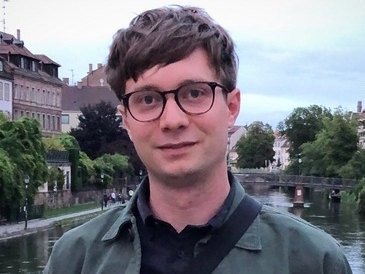Despite growing understanding of plastics as a problem (talked about as the “new coal”), plastics production is expanding worldwide, activating multiple generations of environmental activists, working together on issues that were dealt with quite separately just a few years ago. In this talk, I focus on transnational advocacy efforts and litigation against Formosa Plastics, one of the world’s largest petrochemical conglomerates, operating in Taiwan, Vietnam, China, Texas, and Louisiana’s “Cancer Alley”. Through an interactive tour of the Formosa Plastics Global Archive, I will invite discussion about how ethnographers can both study and help build robust public knowledge infrastructure to characterize emergent environmental problems and possibilities for “just transitions” beyond petrochemical dependencies.
Tim Schütz is a graduate student in Cultural Anthropology at the University of California, Irvine. His research and teaching focuses on ways that data are mobilized in different settings for different purposes – across scientific fields, as evidence in legal cases, and as shared points of reference in social movements. He co-develops a series of ongoing collaborative research projects, including Quotidian Anthropocenes (funded by the Max Planck Institute for the History of Science and Haus der Kulturen der Welt, Berlin), Visualizing Toxics (UCI Center for Ethnography), and the Formosa Plastics Global Archive (Disaster STS Network). Tim is a student advisor for the newly opened UCI Center for Health Disparities Research (CEHDR) and an active member of the Design Team for the Platform for Experimental Collaborative Ethnography (PECE). Twitter: @tmschtz.
Please register for this lecture via email at seasriseprotect me ?!uni-bremenprotect me ?!.de
Program "The Sea Is Rising And So Are We"
.

